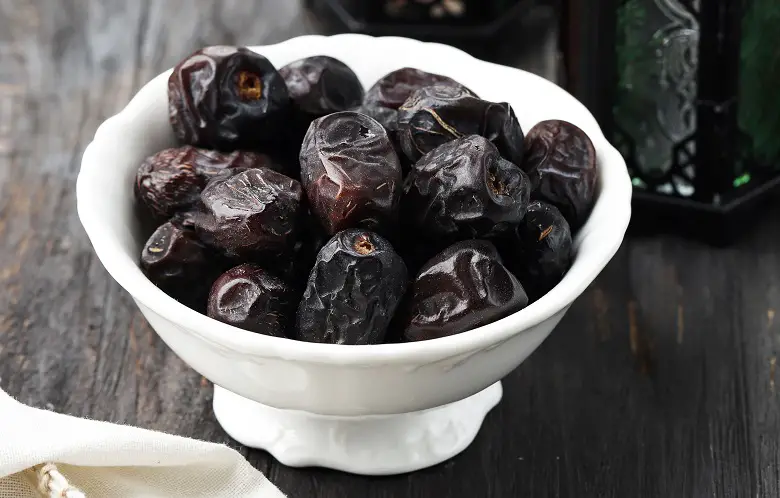
Kurma Ajwa Malaysia and the Economic Impact of Date Cultivation
Introduction
Dates are not only delicious and nutritious fruits but also play a significant role in the economic development of date-growing regions. In Malaysia, Kurma Ajwa holds a special place as a premium date variety known for its exceptional taste and quality. The cultivation and trade of Ajwa dates contribute to the local economy, job creation, and the overall growth of the date industry. In this blog post, we will delve into the concept of Kurma Ajwa Malaysia and explore how dates contribute to the economic development and job creation in date-growing regions. Join us as we uncover the fascinating world of Ajwa dates and its economic impact.
Kurma Ajwa Malaysia: A Premium Date Variety
What is Kurma Ajwa?
Ajwa dates are a highly esteemed variety of dates known for its rich flavor, soft texture, and dark color. It is considered a premium date variety and is cherished by date enthusiasts for its unique taste and nutritional benefits. Kurma Ajwa Malaysia refers specifically to the cultivation and production of Ajwa dates in Malaysia. These dates are grown in specific regions of the country with suitable climatic conditions, ensuring the highest quality and taste.
Importance of Kurma Ajwa Malaysia
Ajwa dates hold immense importance in the date industry and the local economy. The cultivation of these dates creates opportunities for farmers and agricultural workers, contributing to rural development and livelihoods. The premium quality and distinct flavor of Ajwa dates also attract domestic and international consumers, further promoting the reputation of Malaysian dates and boosting the country’s agricultural exports.
How Dates Contribute to the Local Economy
Employment Opportunities
The cultivation of dates, including Ajwa dates, creates employment opportunities in date-growing regions. Date farms require a significant workforce for various activities such as planting, irrigation, pruning, harvesting, and packaging. These activities generate employment for farmers, agricultural laborers, and support staff. The growth of the date industry leads to job creation and income generation, particularly in rural areas where alternative employment options may be limited.
Income Generation
Date cultivation provides a source of income for farmers and the local community. The sale of dates, including Ajwa dates, generates revenue that contributes to the economic well-being of date-growing regions. Farmers can earn income from the sale of fresh dates, as well as processed products such as date syrup, date paste, and date-based confectionery. This income helps sustain the livelihoods of farmers and supports local businesses in the supply chain.
Tourism and Trade
The cultivation of these dates and other date varieties can also attract tourists and promote trade in date-growing regions. Date farms and plantations often offer agro-tourism experiences, allowing visitors to learn about date cultivation, taste fresh dates, and purchase date products. This tourism activity contributes to the local economy by generating revenue from tourism-related services, such as accommodation, transportation, and hospitality. Additionally, the trade of dates, including Ajwa dates, fosters economic growth by creating export opportunities and expanding market access for date-producing regions.
Conclusion
Kurma Ajwa Malaysia represents a premium variety of dates known for its exceptional taste and quality. The cultivation and trade of these dates contribute to the economic development of date-growing regions, promoting job creation and income generation. Date cultivation provides employment opportunities for farmers and agricultural workers, supporting rural development and livelihoods. The sale of dates, both fresh and processed, generates revenue and contributes to the local economy. Furthermore, the tourism and trade associated with date cultivation attract visitors and facilitate market expansion, enhancing the economic impact of dates in date-growing regions.
Key Highlights:
– Kurma Ajwa Malaysia refers to the cultivation and production of premium Ajwa dates in Malaysia.
– It plays a crucial role in the local economy, creating employment opportunities and generating income.
– Date cultivation, including Ajwa dates, provides employment for farmers, agricultural laborers, and support staff.
– The sale of dates contributes to the economic well-being of date-growing regions, sustaining livelihoods and supporting local businesses.
– Date cultivation attracts tourists and stimulates trade, further boosting the local economy.
– The economic impact of dates extends beyond the agricultural sector, with tourism and trade playing significant roles.
– Overall, this supplier and date cultivation contribute to the economic growth, job creation, and the well-being of date-growing regions, highlighting the importance of dates in local economies.